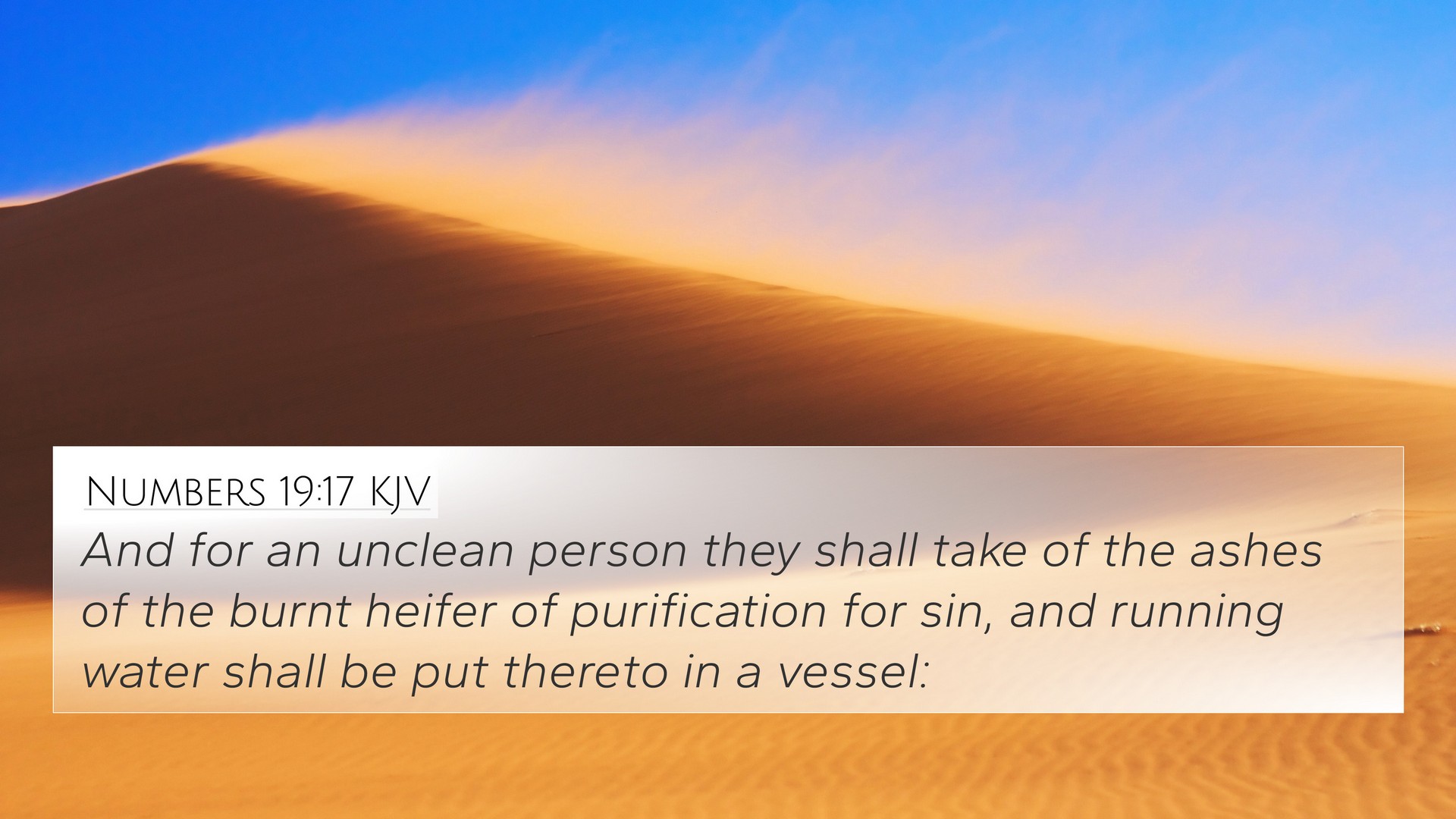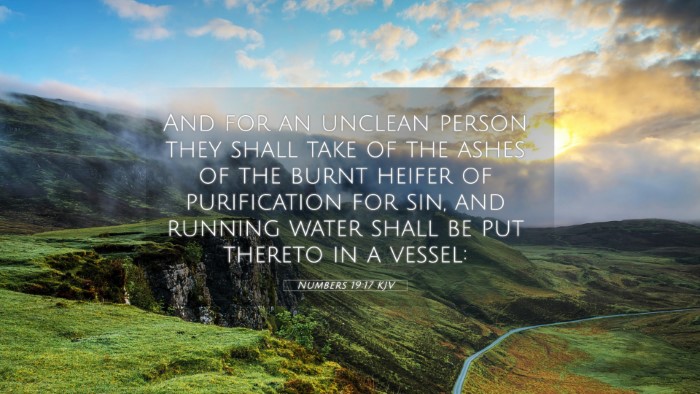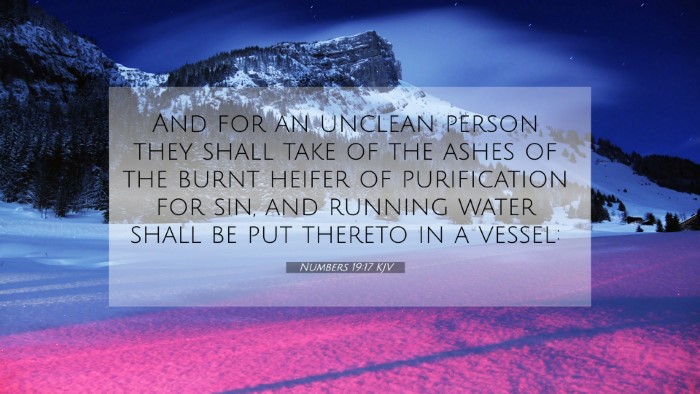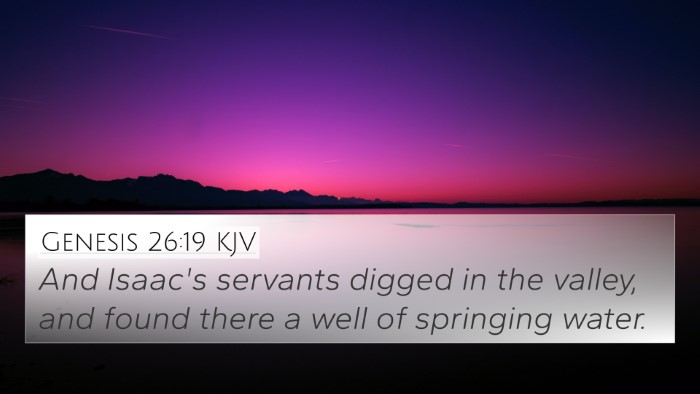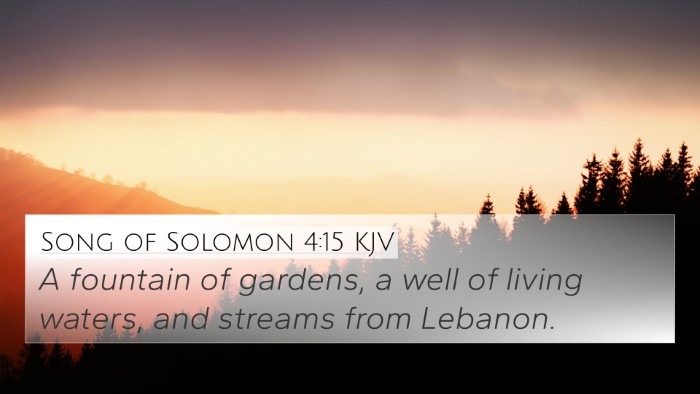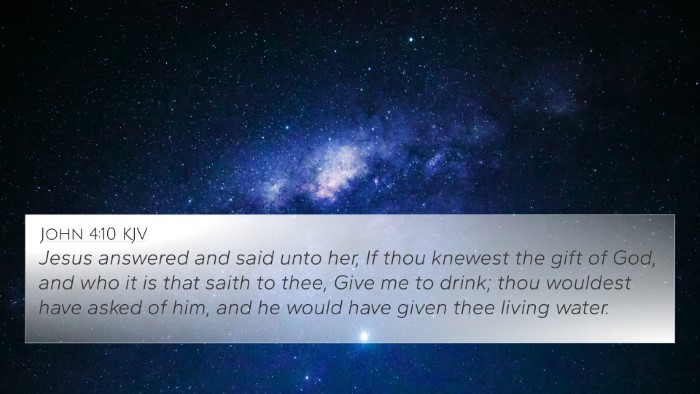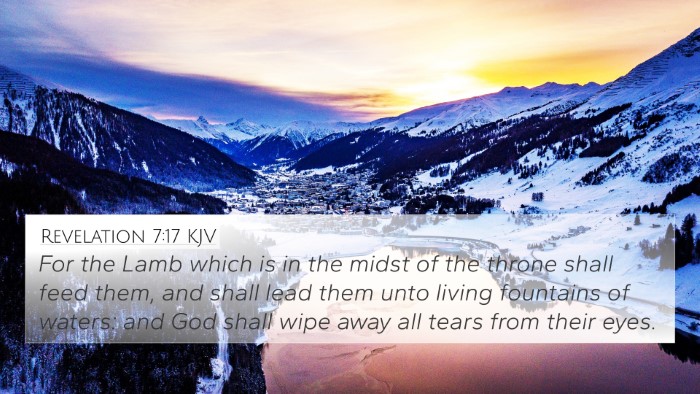Understanding Numbers 19:17
Numbers 19:17 is a significant verse that deals with purification practices in the Old Testament, particularly concerning the use of water mixed with the ash of a red heifer. This passage is imbued with deep spiritual and ceremonial implications, as explored in various public domain commentaries. Below is a synthesis of insights from Matthew Henry, Albert Barnes, and Adam Clarke, aiming to enhance the understanding of this particular scripture.
Verse Text
Numbers 19:17 (KJV): "And for an unclean person they shall take of the ashes of the burnt sin offering of purification for sin, and running water shall be put thereto in a vessel."
Summary of Insights
The verse outlines the process of purification involving the ashes of a red heifer, a crucial element in the Mosaic law regarding cleanliness and atonement. Let's explore the commentaries and their key points:
-
Matthew Henry: Henry emphasizes the symbol of purification through the ashes, which represent both mortality and the need for cleansing from sin. The "running water" signifies life and the Holy Spirit, suggesting that spiritual purification comes from God.
-
Albert Barnes: Barnes discusses the practical implications of this purification rite within Israel's ceremonial law. He notes that the ash signifies the consequences of sin while highlighting God's provision for cleansing and restoration. He also points out that this practice foreshadows the ultimate atonement provided through Christ.
-
Adam Clarke: Clarke elaborates on the cultural and spiritual significance behind this command. He links it to broader themes of redemption and holiness in the Bible, indicating that the ashes symbolize the finality of sacrifice and the necessity for God’s grace to attain spiritual cleanliness.
Thematic Connections
Numbers 19:17 is interconnected with various other scriptures, reflecting a broader narrative of purification, sacrifice, and atonement within the Bible. Below are notable Bible verse cross-references related to this text:
- Leviticus 4:12: Addresses the handling of the altar's ashes, emphasizing the serious nature of sin and the need for atonement.
- Hebrews 9:13-14: Discusses how the blood of Christ purifies our conscience, echoing the themes presented in Numbers 19.
- 1 John 1:7: Speaks about the blood of Jesus cleansing from all sin, harmonizing with the purification imagery.
- Isaiah 1:18: God invites sinners to reason together, emphasizing His willingness to cleanse those stained by sin.
- Ezekiel 36:25: God promises to sprinkle clean water on His people, symbolizing holistic purification.
- Matthew 28:19: The Great Commission, where baptism symbolizes initiation into cleanliness and a new life, linking to the themes of purification.
- John 3:5: Jesus speaks of being born of water and the Spirit, tying into the recurring theme of cleansing and regeneration.
Conclusion
Numbers 19:17 portrays a pivotal aspect of the Old Testament sacrificial system, illustrating the necessity of purification in relation to sin. The ashes symbolize the weight of sin and the accompanying need for divine intervention for restoration. The connections established through related scriptures highlight a consistent biblical theme that culminates in the New Testament's provision for redemption through Christ.
Exploring Further
For those interested in studying the connections between Bible verses, tools such as a Bible concordance or Bible cross-reference guide can significantly enhance your understanding. Engaging in cross-referencing Bible study methods allows believers to see the intricate web of themes throughout scripture, facilitating deeper insights into God's message.
Practical Tools for Cross-Referencing
- Bible Chain References: Systems that help to identify thematic links across various verses.
- Comprehensive Bible Cross-Reference Materials: Resources that assist in expanding your study of cross-references.
- How to use Bible cross-references: Understanding the importance of linking biblical texts for better interpretations.
